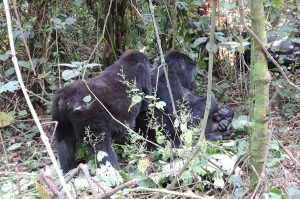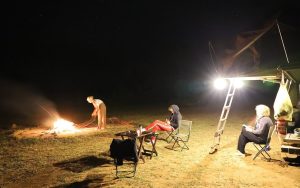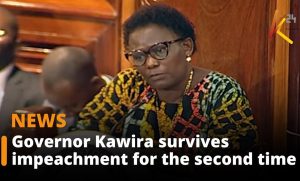Friday morning March 18 found The Standard senior political writer Juma Kwayera seated at his desk doing a story. He was busy interviewing a source by telephone when his mobile phone rang. The number looked vaguely familiar, but he ignored the call. After the interview, Kwayera called the number.
The man who picked it up spoke in Kiswahili. Who did Kwayera think he was, writing that sort of stuff in the Standard, the man demanded angrily. He informed Kwayera that he had been hired to kill him. The journalist asked the man’s name. He said ‘John’ and declined to give his other names.
The ‘hired killer’ went on with his rant. He knew how to find Kwayera and the journalist shouldn’t even bother reporting to the police because it won’t be any help, he offered. Could ‘John’ please say what story he or whoever hired him was aggrieved about, Kwayera asked. The man only continued his threats and then abruptly cut the line.
Although he says was not scared, Kwayera could not take the call lightly. “I am not afraid. Only the guilty are afraid. I have done nothing wrong,” he told ET. The same day the threatening call came he recorded a statement at Nairobi’s Central Police Station. The journalist says he had previously received calls from strange four-digit numbers which are not in use in any telephone network in Kenya, such as 0025, 0026 and 0028.
“Someone calls you but when you answer he doesn’t talk. And when you call back the same number it doesn’t go through,” Kwayera said. Another odd thing had happened on the night before he received the call from ‘John’. The journalist was on his way home at around 10 PM when an acquaintance in the security forces called him seeking to know how Kwayera’s son was doing in school. Kwayera had not spoken with the man for a while. It struck him as strange that he could call at that time of the night just to ask about his son.
In early February, Kwayera had written about frantic efforts by a section of the Grand Coalition Government to convince the African Union to back efforts to get UN Security Council to pass a resolution deferring the International Criminal Court process against six suspected masterminds of the post-election violence. The Standard on Sunday report revealed that the PNU wing of the Coalition had procured the expertise of foreign lobbyists who, among other things, helped produce a gory one-sided video on the chaos that engulfed Kenya in 2007/8.
The video, the Standard reported, showed “how the Kenya delegation led by President Kibaki, top Government mandarins, and PNU stalwarts channeled the blame to the Orange Democratic Movement and its leader Raila Odinga, now the Prime Minister. The PNU show then zeroes in on the International Criminal Court and it’s Chief Prosecutor Luis Moreno-Ocampo for equal bashing. So gripping was the video clip that a 10-minute break was called after the presentation,”. PNU and its allies had also secured the support of some civil society activists who picketed outside the OAU Summit in Addis Ababa calling for deferral of the ICC investigation.
After the story ran, Kwayera says he received a text message from a presidential aide describing him as “master of mischief.” He brushed aside the SMS. “I didn’t take him seriously. I took it as normal. You write a story and some people praise you while others hate you.” But when he got the call from ‘John’, he began to think twice.
It brought to his mind other equally unsettling incidents in the past. In October 2008, Kwayera had just finished a story whose gist was that the former ruling party KANU was on its deathbed. He was heading home when he received an anonymous call about the story. The caller admonished him to write balanced stories that gave equal opportunity to both sides.
The shocking thing was that the story was not yet published. How someone outside the newsroom got to know about it mystified Kwayera. When he took up the matter with his superior, he was promised an investigation – which never took place.
Kwayera believes the threats are meant to intimidate him to refrain from writing politically sensitive stories. “It is intimidation, so that you stay away from certain stories,” he says. Implementation of the new Constitution, he points out, has caused some rich and powerful people sleepless nights as the country is moving towards more accountability and integrity in public life. Many of those who are likely to fall foul of the supreme law do not want the media spotlight turned on them.
Last December, another journalist recorded a statement with the police claiming he had received threats after writing a story about Mkadara MP Gideon Mbuvi alias Sonko. Deo Omondi, Associate Editor at Express Media Group which publishes The Sunday Express, said Sonko and his aides threatened him after the journalist wrote a story about the legislator’s 1998 prison break.




